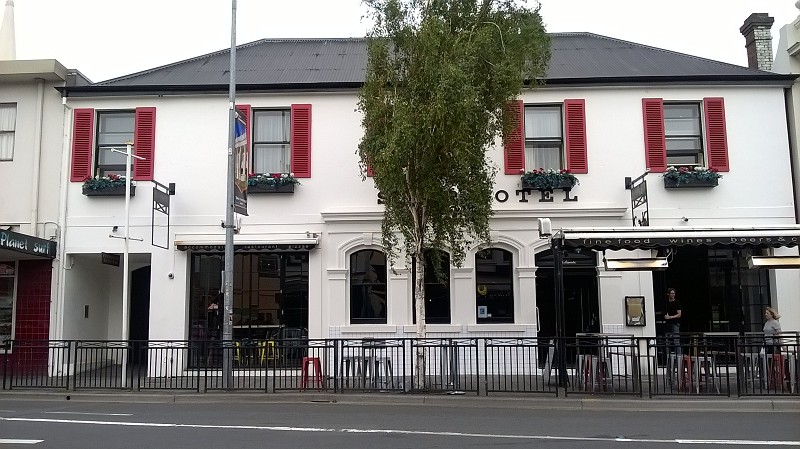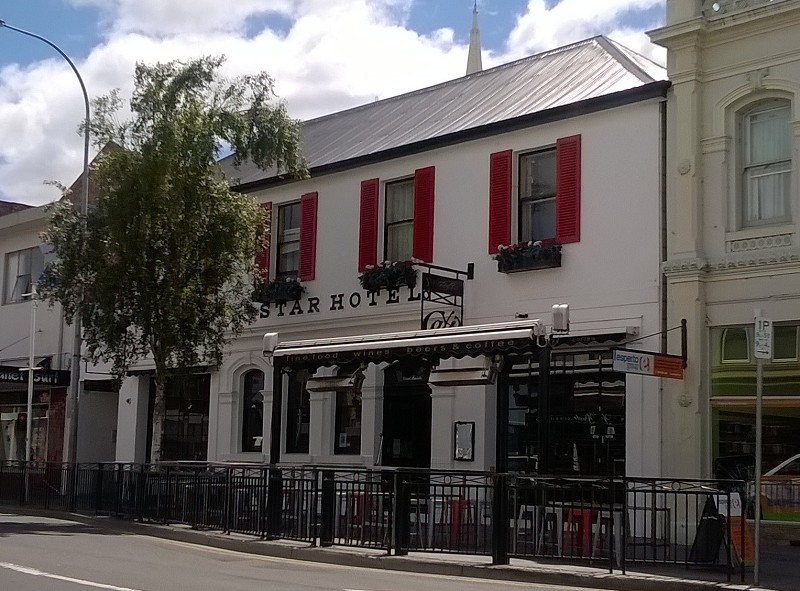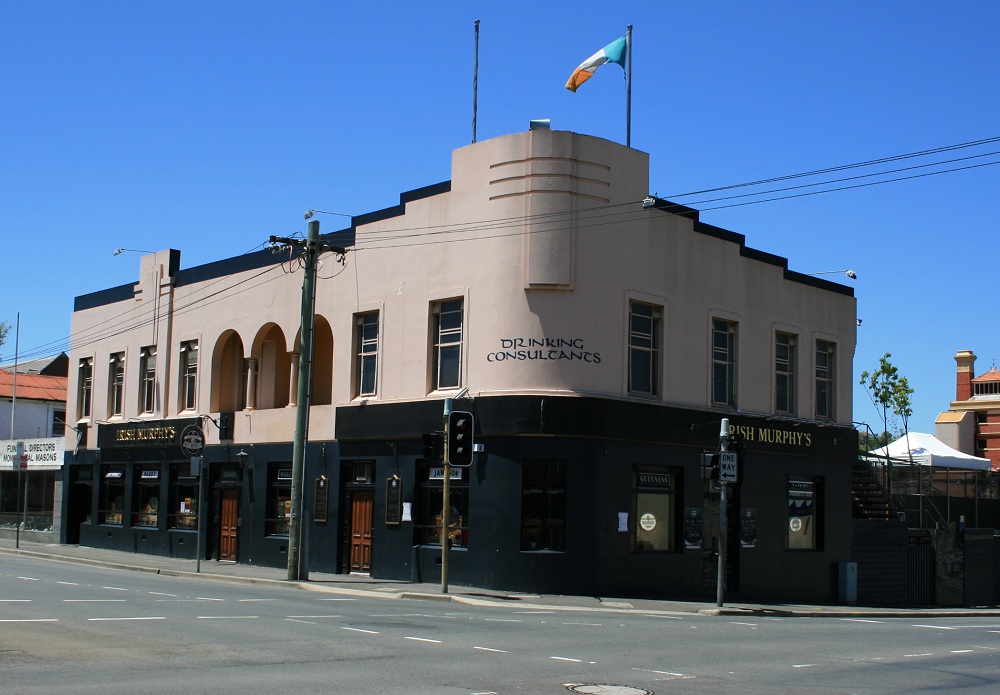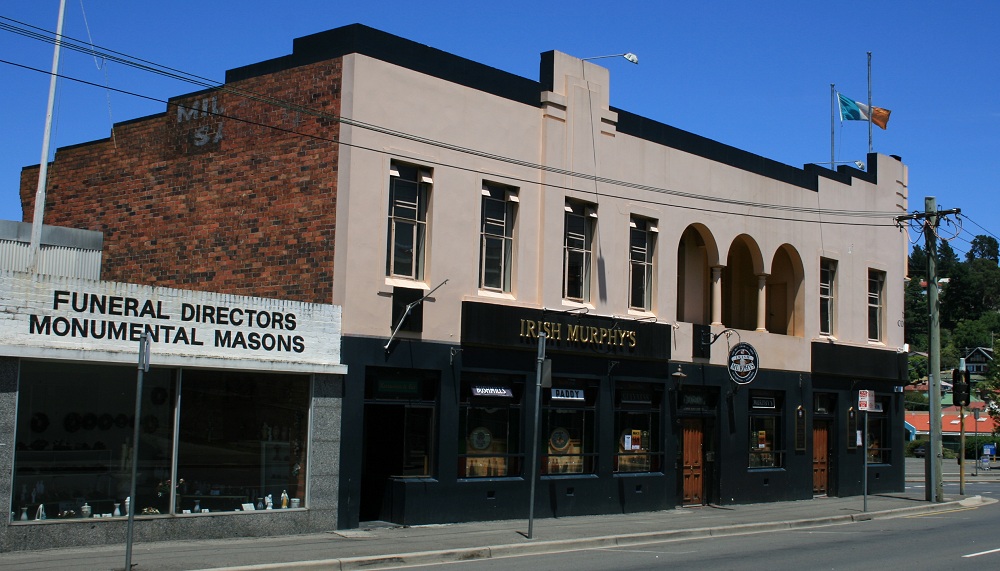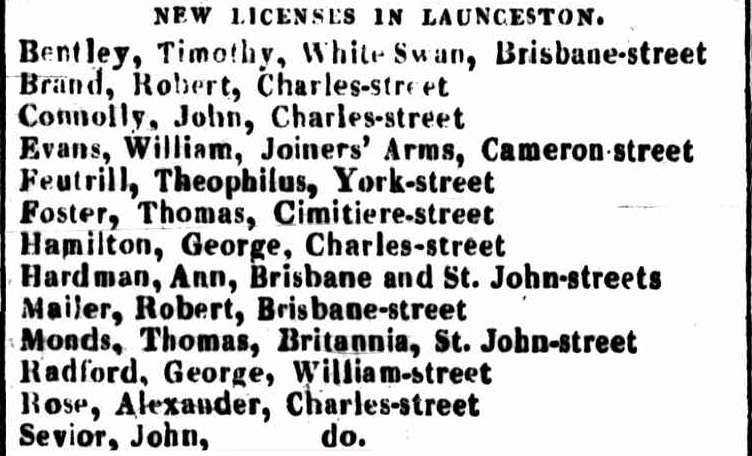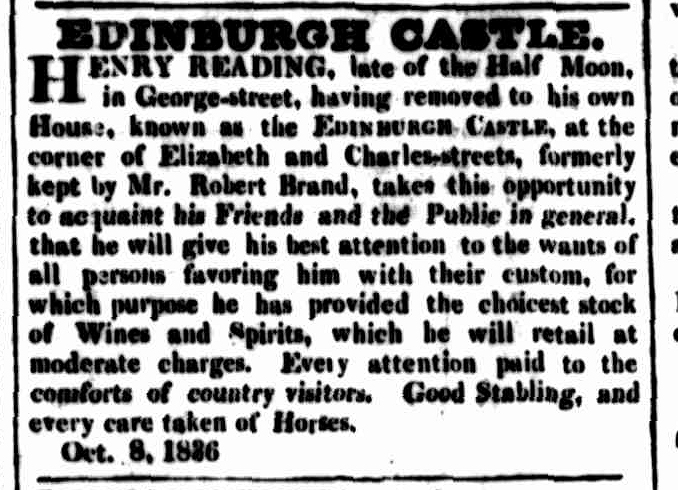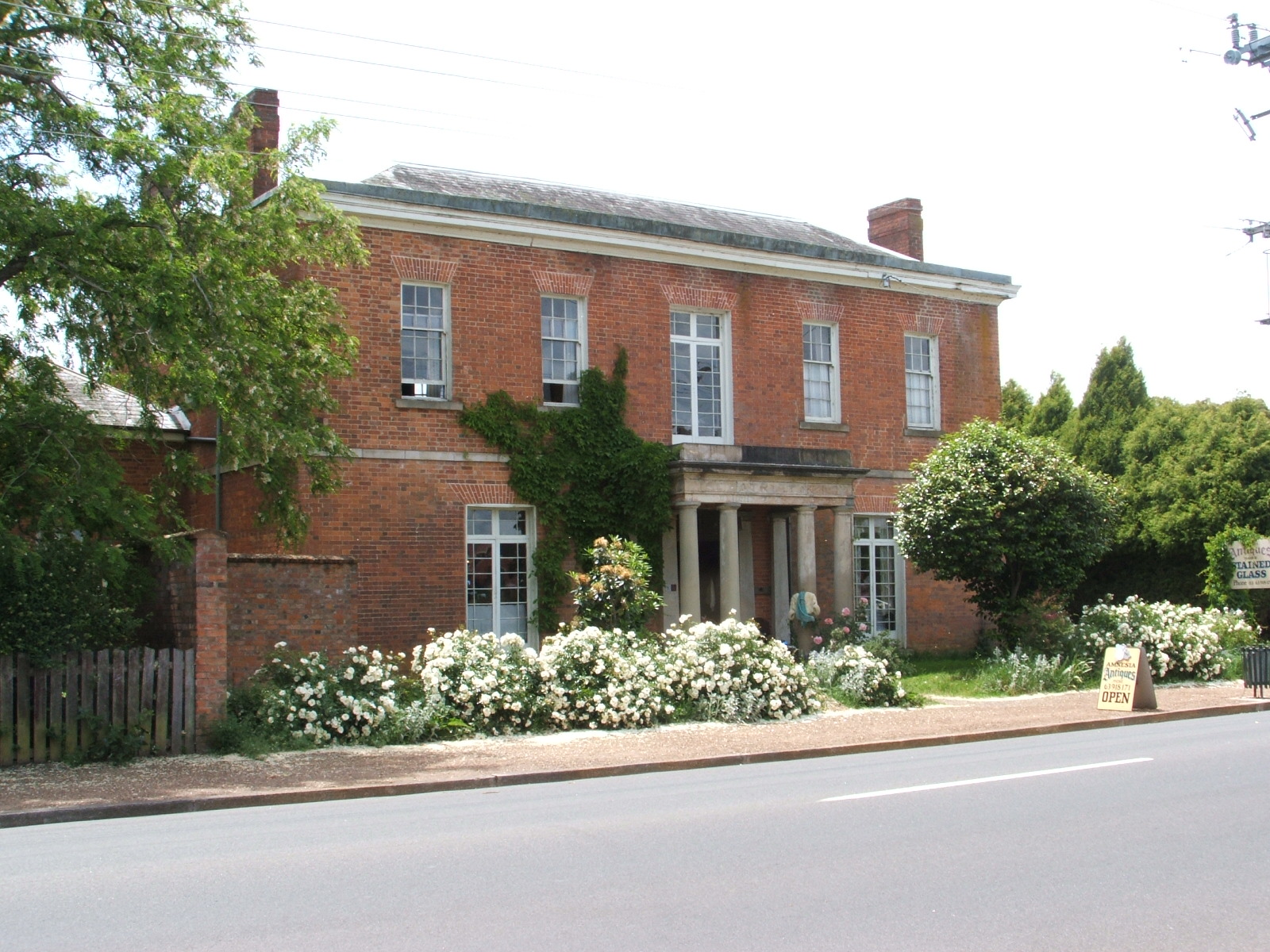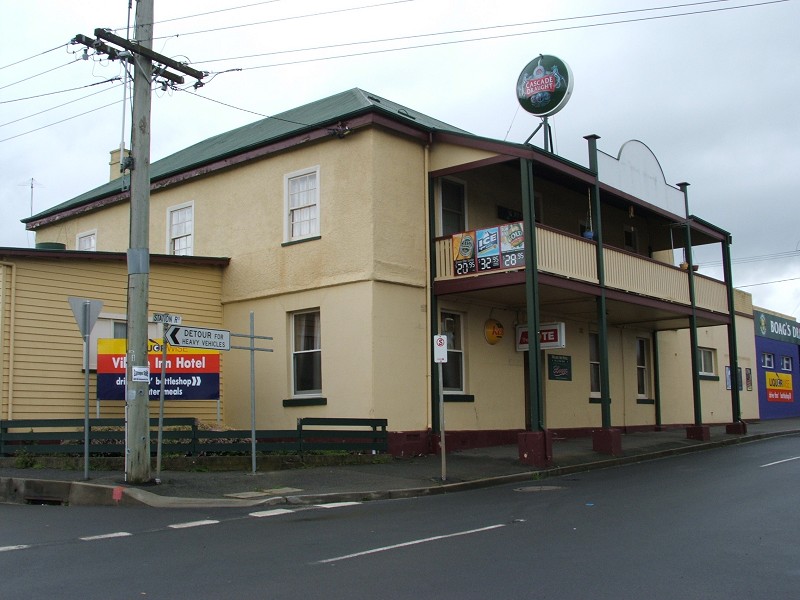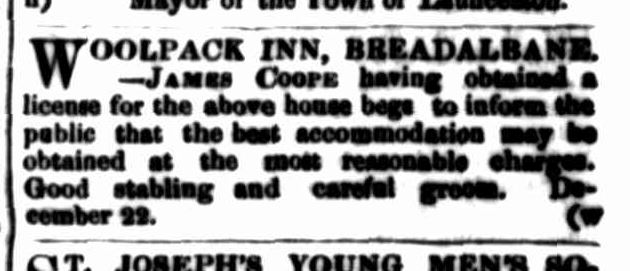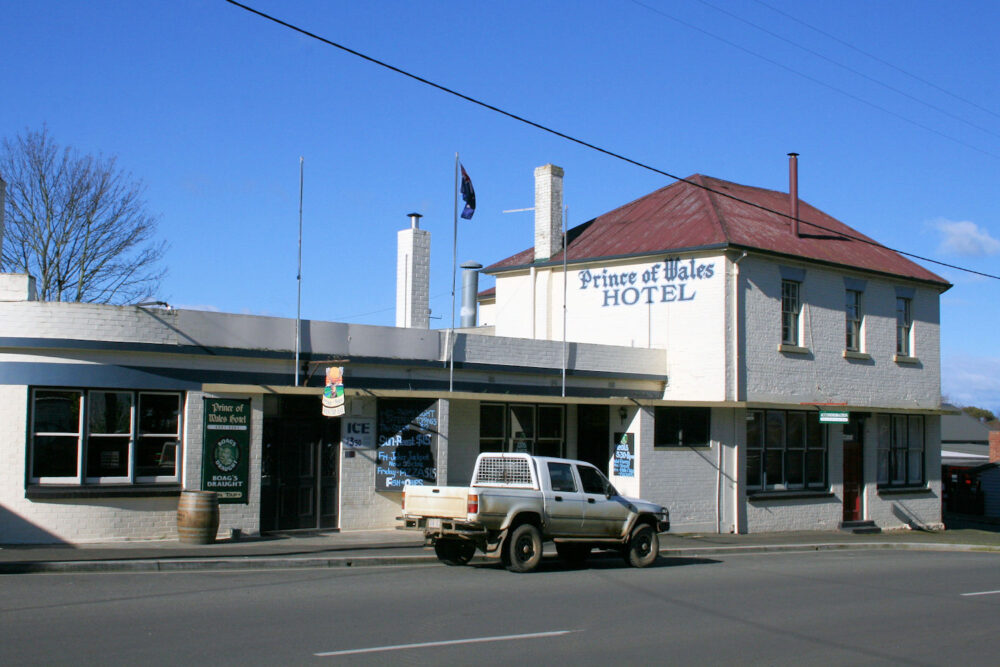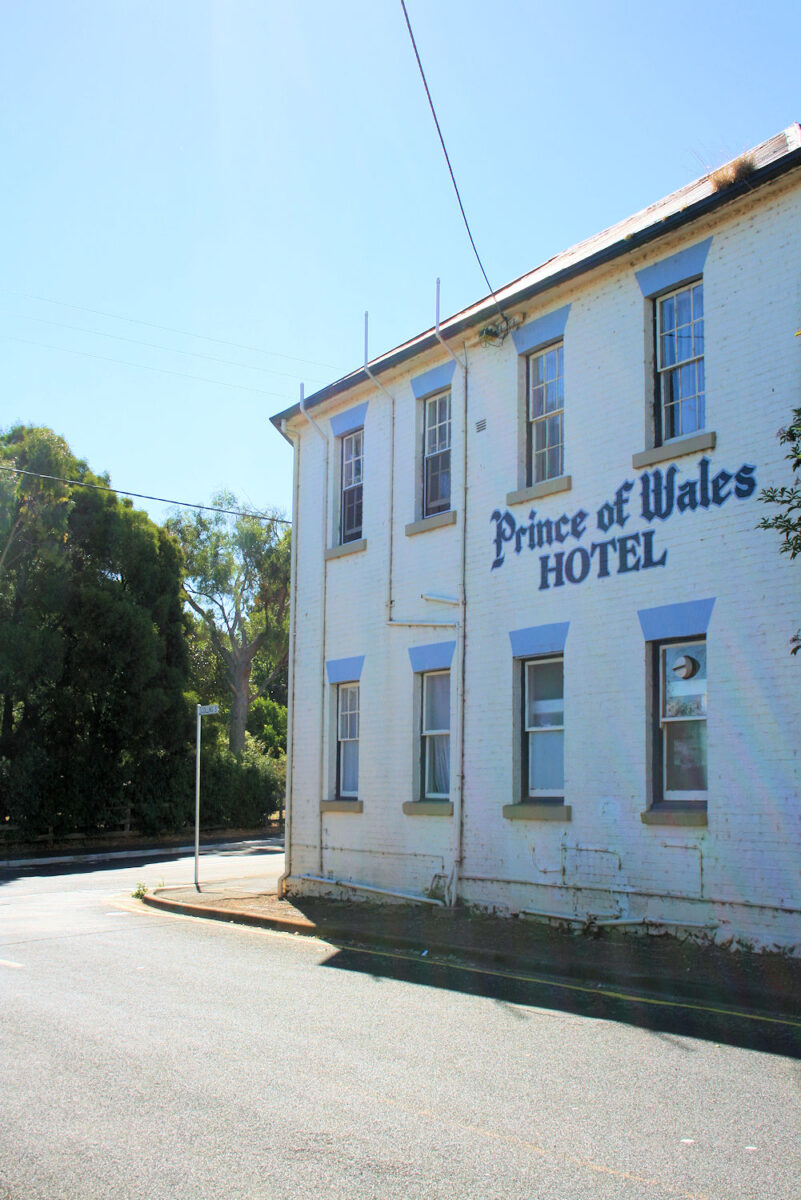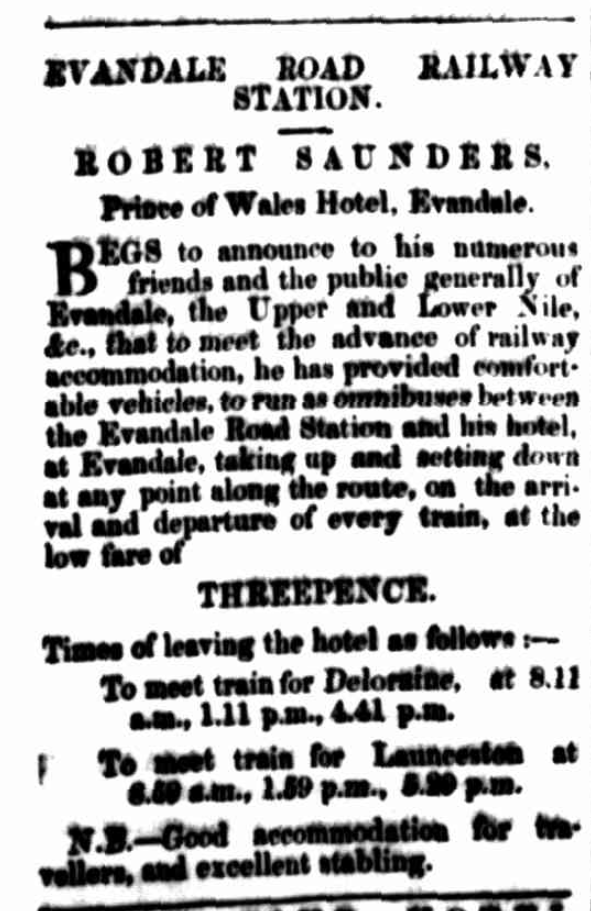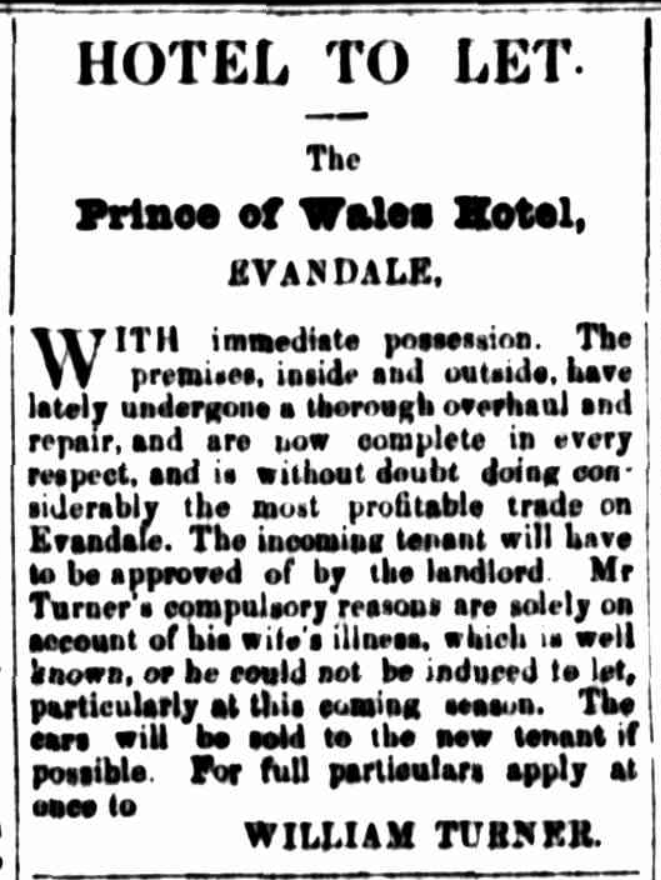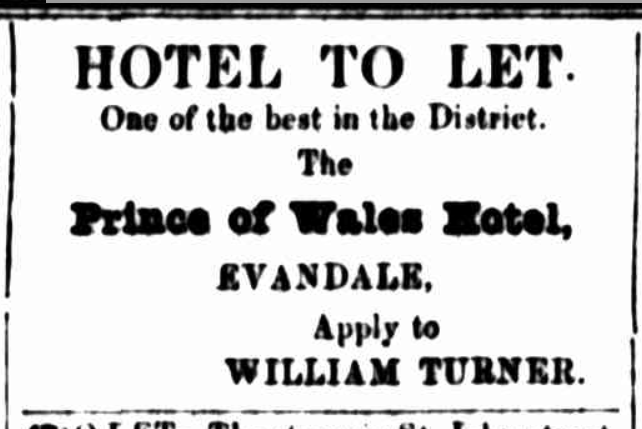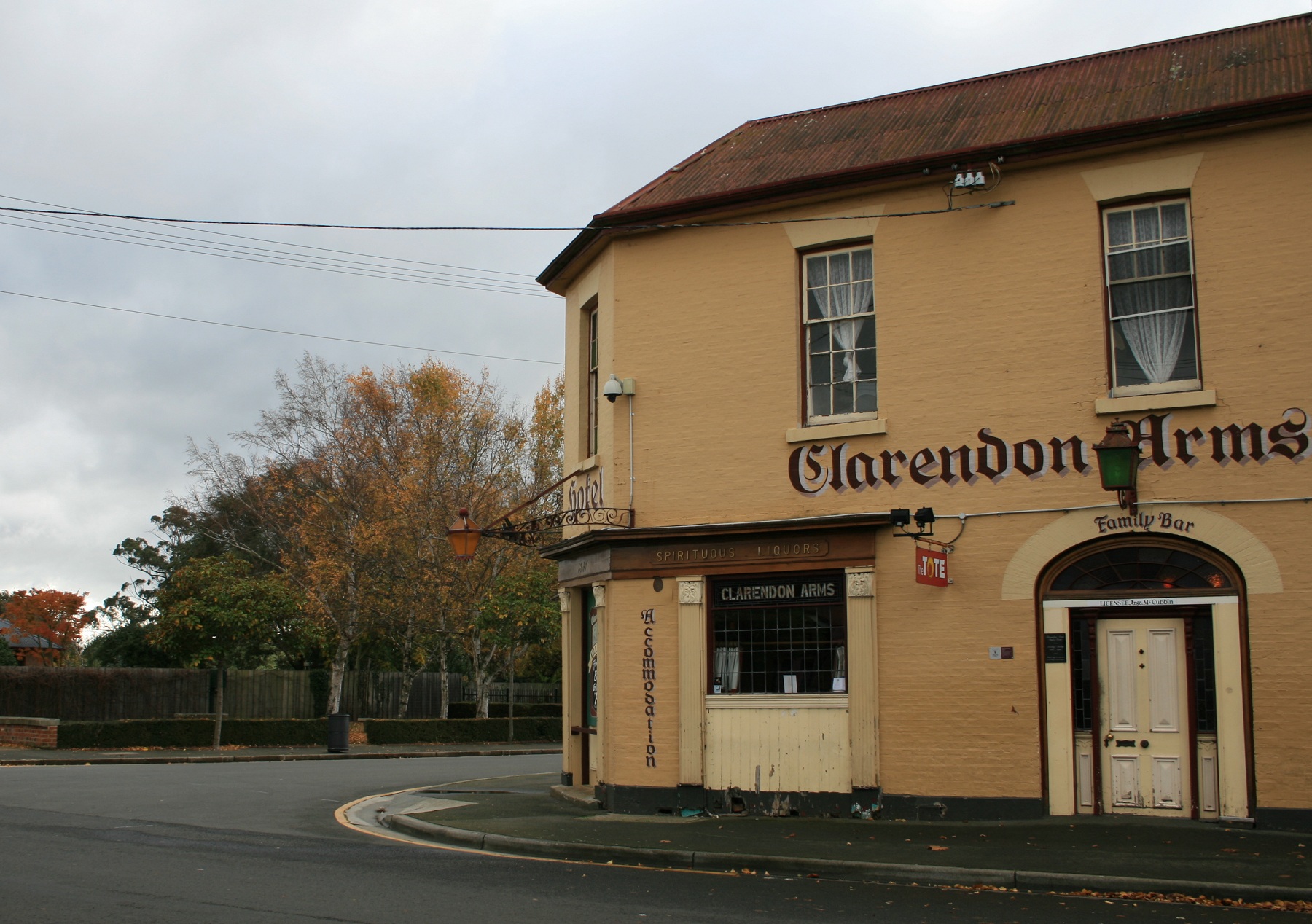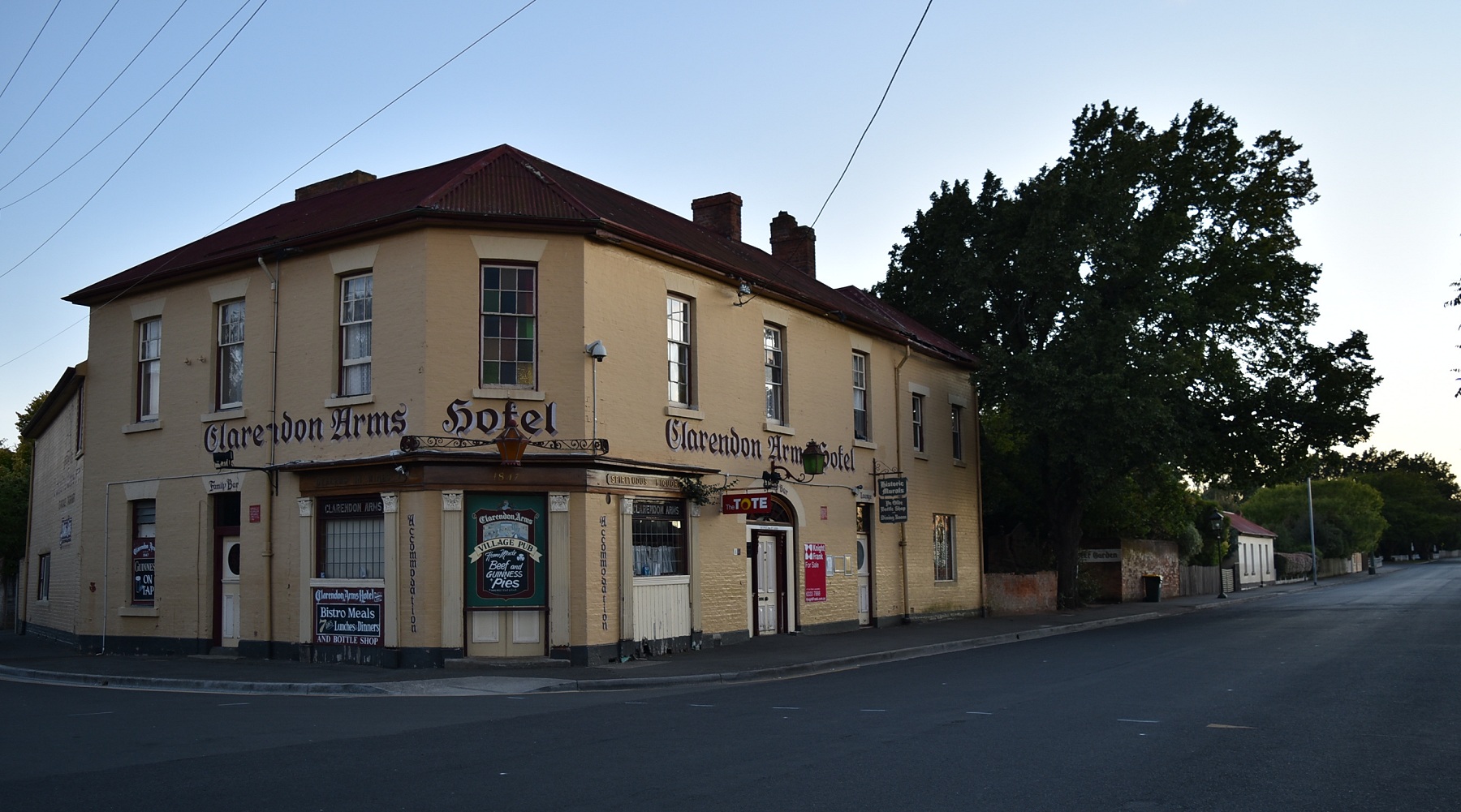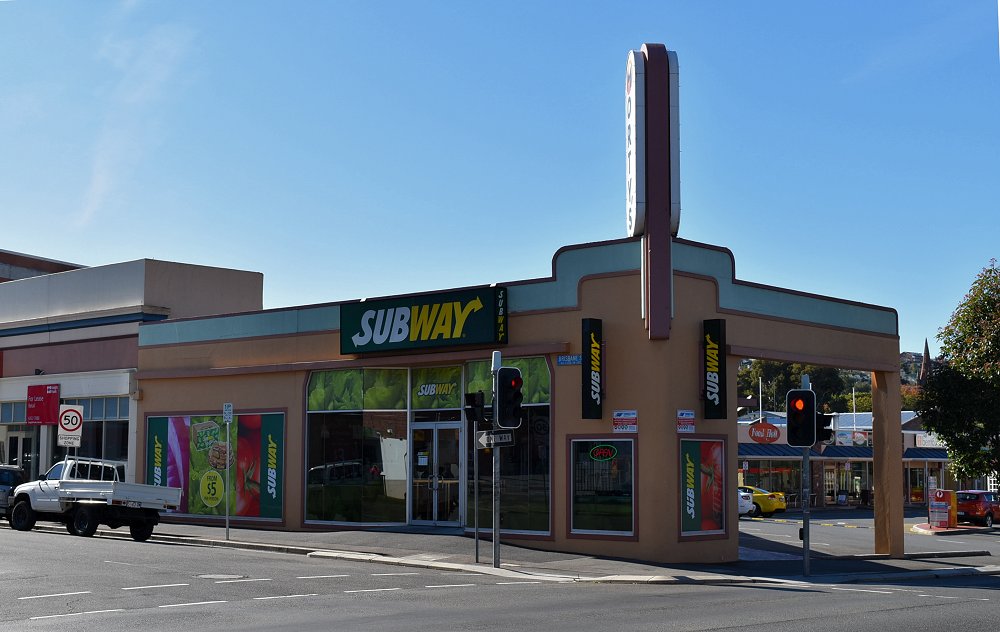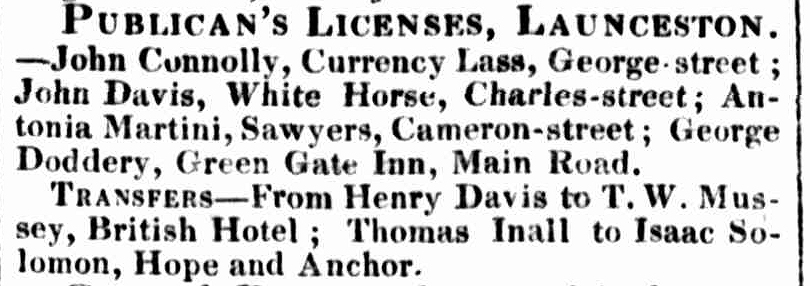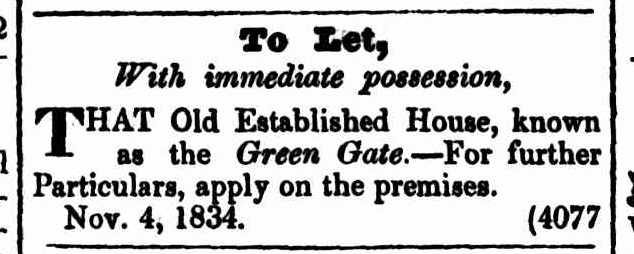Charles St, Launceston. Google Maps.
Very incomplete
1840-41 Bernard Sweeney, Star Inn [transfer]
1842-49 Bernard Sweeny, Star Inn, Charles Street
1850-54 Mary Sweeney, Star Inn, Charles street
1854 John Joseph Moore, Star Inn, Charles Street
1854 Henry Bevan, Star Inn, Charles Street
1854-59 John Joseph Moore, Star Inn, Charles Street [new]
1859-60- John Sheridan
1870- Charles Cooley, Star Hotel, Charles-street
-1877-1885 William Chester
1885-1890- Hannah Chester, Star Hotel, Charles-street
Charles St, 1885, with Star Hotel on the far right.
From “Launceston Police Report”:
This was an information brought on by the Chief Constable against the defendant, the landlord of the Star Inn, Charles street, for neglecting to keep his outer door closed on the evening of the 12th March last. Mr. Rocher, who appeared for the defence, endeavoured to have an informality in the information, which the bench overruling, the case proceeded. The evidence in support of the information stated, that Mr. Byron und two petty constables went to the house of the defendant between seven and eight o’clock on Sunday evening, the 12th of March last, and that in one room there were no less than ten soldiers drinking and smoking, five pots and eleven glasses being on the table, containing as the witness supposed, malt liquor. In another apartment, a prisoner of the crown, employed in the marine department, was quietly seated, taking his wine and water, in company with a ticket of leave-man, who, it was stated, resided at Mr. Sweeney’s. The evidence for the information having been gone through, Mr. Rocker insisted that nothing wag proved against his client respecting not keeping his outer door closed— had the’ charge been for tippling, it would have been different. ..The Bench would not admit of Mr. Rocher’s objection, but called upon him to prove, if he could, that the parties were bona fide travellers or guests of the landlord. Nothing daunted «t the difficulty, Mr. Rocher proceeded with his case, and called first the government man that was taken out of the house (and who appears to be a, man of good character,) ,. and fully proved that the said1 man was there by Mr. Sweeney’s
invitation to dinner, &c. and was bona fide a visitor. To overcome the military part of the business, Mr. Rocher called one of the soldiers, who stated that himself and some of his comrades called at Mr. Sweeney’s on the evening in question, and requested to be served with liquor; that Mr. Sweeney declared his inability to serve on a Sun day, but, being an old soldier himself, he would not see them want for a glass of beer, and as he could not sell them any, why, out of regard to the cloth, he would make them a present of a gallon of ale, and accordingly it was in the midst of their enjoying the said ale, that Mr. Byron and his deputies popped suddenly upon them. No money was paid for the beer so drank, and several of the party were to corroborate the witness, if necessary. The Bench felt inclined to believe the defence. Captain Gardiner sagely remarking, that no doubt Mr. Sweeney was throwing out a sprat to catch a salmon. — The case was accordingly dismissed.
Launceston Courier, 27 March 1843
Census entry, 1843 (CEN1/1/67)
STAR, INN
CHARLES STREET. LAUNCESTON.
BERNARD SWEENEY, grateful lo his friends and the public generally far the liberal support given him for several years past, in soliciting a continuance of their favours, begs most respectfully to intimate that, in addition to the previous accommodations, he has made extensive alterations, amongst which are four capital well-furnished bed-rooms.
Also, a large sitting-room, well adapted for the reception of a family from the country, or commercial gents, who may have private business to transact. There is an excellent five-stalled stable, with gig houses, A careful ostler always in attendance.
N.B.— Country settlers will find the “Star Inn” well adapted for a temporary residence. Parties boarded by the day or week.
B. S. is determined to spare neither pains nor expense to deserve the patronage of his friends, feeling assured that a strict attention to business, punctuality, and au earnest desire to promote the comfort of his customers, will ensure the support it will be his study to deserve, and pride to acknowledge.
October 28.
Cornwall Chronicle, 30 October 1847
Census entry, 1848 (CEN1/1/99)



From Mary Sweeney, Star Inn, Charles-street, to John Joseph Moore. The police magistrate intimated that since the annual meeting Mrs. Sweeney had been married to Mr. Moore. Transfer granted.
Hobarton Guardian, 6 May 1854
From “Transfer Day”:
From John Joseph Moore to Henry Bevan, “Star Inn,” Charles street. The chairman enquired if applicant understood that the transfer could only be granted to the end of the year; to which Major Welman replied – “Sure he is one of the government officers, and he knows.” Granted.
Launceston Examiner, 7 November 1854
From “Annual Meeting of the Justice of the Peace”:
John Joseph Moore, “Star Inn”.—-The Police Magistrate stated he knew of no objection to this application, save one started a few days ago viz. : that there was a shop containing a few books and stationery attached to the premises. He had visited the premises very recently, and it appeared to him that the shop was a very temporary affair, and there was no communication with it from the house ; only through the back yard.
The Chairman read the 35th. clause of the Act referring especially to this point. Dr. Casey said he should oppose this application, he drew attention to the abstract impropriety of the Act : being evaded by allowing a shop to be kept on the premises of a licensed house. The applicant was the Editor of an inflamatory Newspaper, and this shop was kept as an office and for the sale of the Papers in direct violation of the Act of Council in it was part of the premises of the Star Inn. He knew nothing could be. advanced against the house it had a considerable country connection ; he did not object to the proprietor, and only made the remarks for the public benefit and in a spirit of equity.
Mr. Moore requested permission to state that the clause of the Act referred to, had nothing to do with the granting of the License; had he been brought up, and convicted at any time of a violation of the law, it would be a different matter. Dr. Casey had made two charges against him, it was only necessary to refer to the first, that of keeping a shop for the sale of newspapers. Mr. Moore declared that no paper nor anything else had ever been sold there, and explained the position, the shop had originally been a passage to the back premises, this he had temporarily roofed over, and placed a window in the front where he exhibited his newspaper for, the benefit of poor persons who could not afford to purchase one, and he regretted, that any gentleman upon the bench could make a statement that was not true. Who had ever bought a paper in’ the shop? he defied Dr. Casey to prove what he said on the bench In reply to Captn. Drew, Mr. Moore said that neither he nor any one else ever entered that shop for the purpose of buying a paper. After some discussion amongst the magistrates the license, with the exception of Dr. Casey’s vote, was unanimously granted.
The People’s Advocate, 3 December 1855
From “Annual Licensing Meeting”:
John Joseph Moore, Star Inn. Dr. Casey drew attention to the thirty.-fifth section of the Act, which prohibits the keeper of a licensed house from having a shop on his premises. ‘That prohibition applied to the applicant, who had a shop adjoining his house, and it certainly applied to such an objectionable occupation as that of editor of an Inflammatory newspaper. After some discussion as to whether the shop formed part of the premises in the sense Intended by the Act, Mr. Moore stated that It had no connection with the house, and was merely used as a paper store, and not for the sale of newspaper or stationery. In reply to Major Welman, the chairman stated that the Act did not prohibit a holder of a license from following any other occupation. Captain Drew was of opinion that as no Information laud been laid against the applicant on the ground referred to, the license ought to be granted, which was accordingly done.
Launceston Examiner, 4 December 1855
From “The Municipal Assessment”:
J. J. Moore,; “Star Inn,” Charles-street, 2001. Mr. Moore submitted that he was over rated, both as to the value of the premises and by comparison with properties in the same street. The Mayor said 60l. had been added for improvements, but the amount was the same as at the last assessment. Mr. Moore said he had intended to have appealed last year, but was too late. Alderman Weedon observed that the promises at the corner of Charles and Patterson-streets, occupied by Mr. Davis, were assessed at the rate of 1301., although far inferior to Mr. Moore’s. Reduced to 1601.
Launceston Examiner, 1 April 1856
From “Licensing Meeting”:
Star Inn, from J. J. Moore to John Sweeney.
Mr. Rocher appeared for the applicant and stated the ground of the application as being to protect the license, Mr. Moore having left the colony, and not being likely to return.
Some discussion took place as to the power of the bench to grant a transfer in the absence of the holder of a license, it being the opinion of several justices that
they had not the power.
Mr. Rocher withdrew the application.
Launceston Examiner, 3 May 1859

Mr Wecdon sold at his rooms yesterday, the following property of the late D Robertson, Esq:—The Star Inn property to Mr John Sheridan, for £1610; Mr Ward’s shoe shop to Mr Wm Stepney, £960; the allotment in the rear to Mr John Sheridan, £345 ; the property adjoining the Black Horse, in Wellington street, to Mr John Cameron, £510; allotment (lot 8) with house, Mr D Room, £500 ; lot 6, Mr P Miller, £270; two small allotments at the rest, £20 cash. The Brisbane street property was sold to Mr John Knight for £505; allotment of two acres at George Town, to Mr W Johnstone for £100.
Hobart Town Advertiser, 4 June 1859

Launceston Examiner, 4 August 1885
